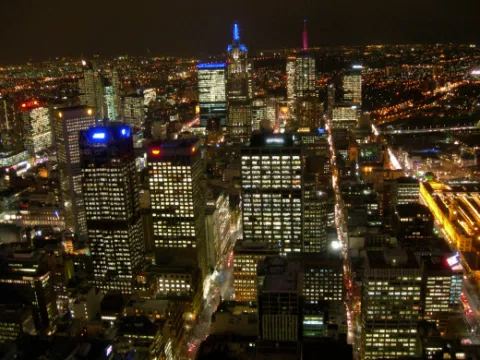
Australia’s fastest-growing city is trying to stop a fast-growing problem: How to keep up the economic growth while still providing a place for low-income residents to live.
As cities grow, low-income housing is often the first to be cleared out to make way for higher-value projects, and Melbourne is growing fast. Melbourne’s population has doubled over the past 13 years, and projections call for it to nearly double again within the next 16.
And already, rents are growing faster than incomes, according to Sourceable. The median rent has more than doubled over a 10-year period. Half of all renters in the city are under “housing stress.”
Melbourne calls its housing strategy, Homes for People, and created a video (see below) to explain the problems, solution and positive benefits to the community as a whole. The idea is that everyone benefits when cities make room for people of all income levels. By allowing low-income residents to live close to city jobs, they can improve their financial situation, get off of public assistance and contribute to the economy.
Three major goals
Melbourne has set ambitious targets. It wants more than 1,700 affordable homes built by 2021 – 15% of all the planned construction in the city.
And while that housing will be subsidized and carry lower rents, it won’t be lower quality. Affordable units are to be indistinguishable from the regular units. They also won’t be smaller. The size of new apartments has already dropped to the point that the units wouldn’t even be legal in Sydney, New York or Hong Kong. It’s pushing for better design and environmental performance without reducing the size further.
Finally, Melbourne plans to educate the public about the need for and benefits of affordable housing, and to be much more involved with the community in coming up with solutions. In particular, it wants to work with and encourage developers to build to higher standards.
Next steps
While Melbourne has set its overall housing goals, it’s asking for the public to comment on the steps to reach them. The city has outlined several, including adding affordable housing units to any city-owned site being redeveloped, working with architects to find ways to add quality housing units while increasing housing density, zoning changes that require affordable housing units in every part of the city, and a ratings system that makes it easy for renters to determine the quality of a given unit while providing an incentive for developers to construct them to a higher standard.
What Melbourne is struggling with is a challenge for cities facing explosive growth around the world. Use the Comment form below to tell us how your city is addressing the housing issue or whether you think Melbourne is on the right track.



